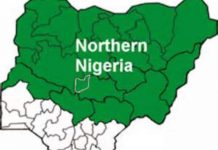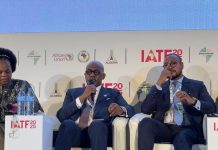There was spontaneous applause as Africa’s largest economy Nigeria signed up to a deal that experts say could provide far-reaching benefits, but only if it is implemented properly.
Nigeria’s President Muhammadu Buhari knew how much power the open folder before him carried. Inside, there was a raft of loosely held papers containing signatures.
A handful of officials behind him watched silently as a pen dangled between his fingers. As Buhari leaned forward from his seat and signed the paper before him, the audience clapped and cheered.
Handshakes exchanged and a delighted Buhari looked up proudly at the crowd gathered at the African Union summit for African heads of state, held in the Republic of Niger’s capital Niamey on July 7.
This step was, by any measure, a significant move. Nigeria, Africa’s largest economy, has finally accepted, after nearly four months of delay, to sign an agreement launching the African Continental Free Trade Area –– AfCFTA for short.
The AfCFTA aims to, among several other cardinal objectives, create a single market for goods and services and facilitate the free movement of people, capital, goods and services.
Nigeria had delayed signing the agreement, saying it needed to hold consultations with trade unions and local manufacturers.
President Buhari failed to attend a ceremony in the Rwandan capital Kigali in late March last year where 44 out 55 member states signed the agreement to open up their borders and eliminate barriers to trade.
“Without Nigeria, the leading economic power of the continent, there would have been a taste of unfinished business in the conclusion of this agreement,” Niger’s President Issoufou Mahamadou told the crowd at the 12th Extraordinary Summit of the Assembly of the Union on the AfCFTA.
The Republic of Benin also signed the agreement in Niamey, bringing the number of countries who have signed up to the agreement to 54. Only Eritrea is still to sign the pact, which makes the bloc the world’s largest free trade area.







